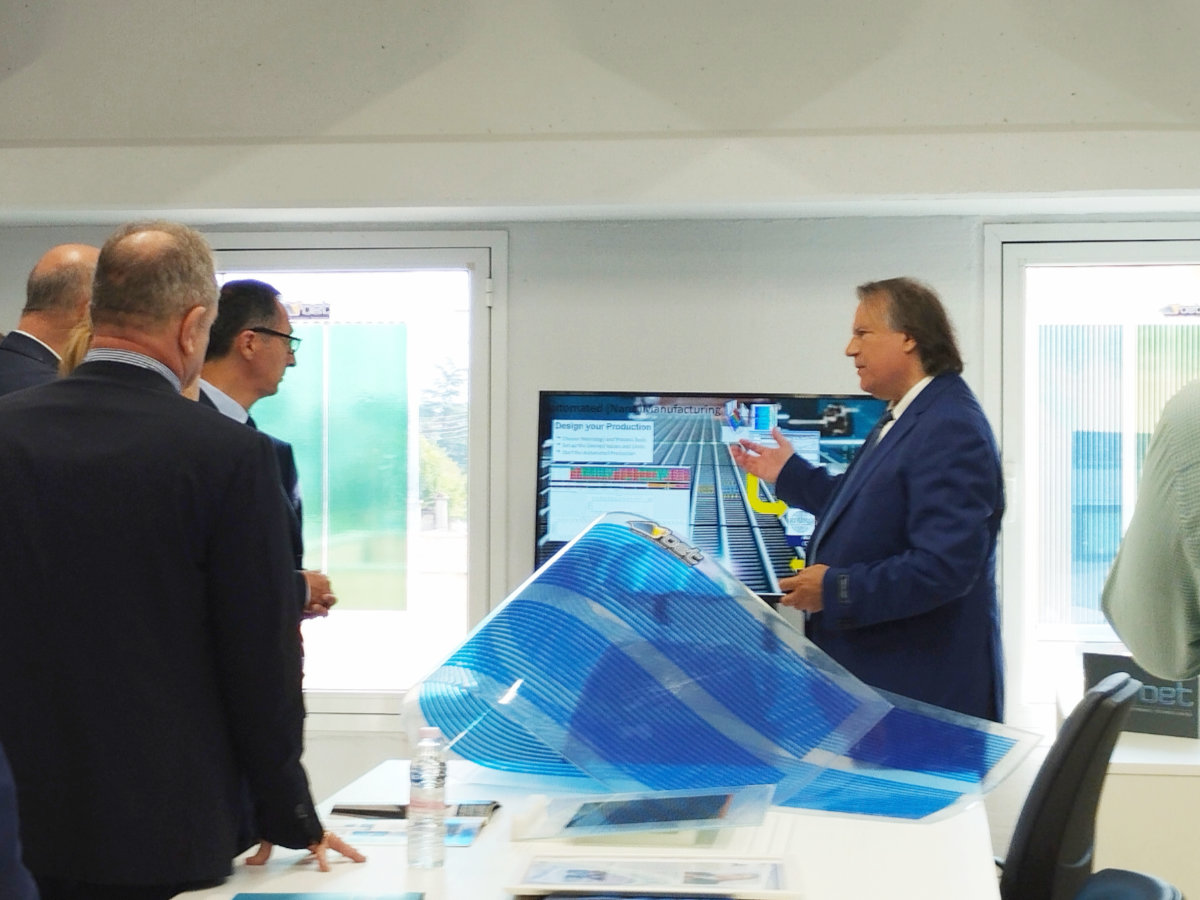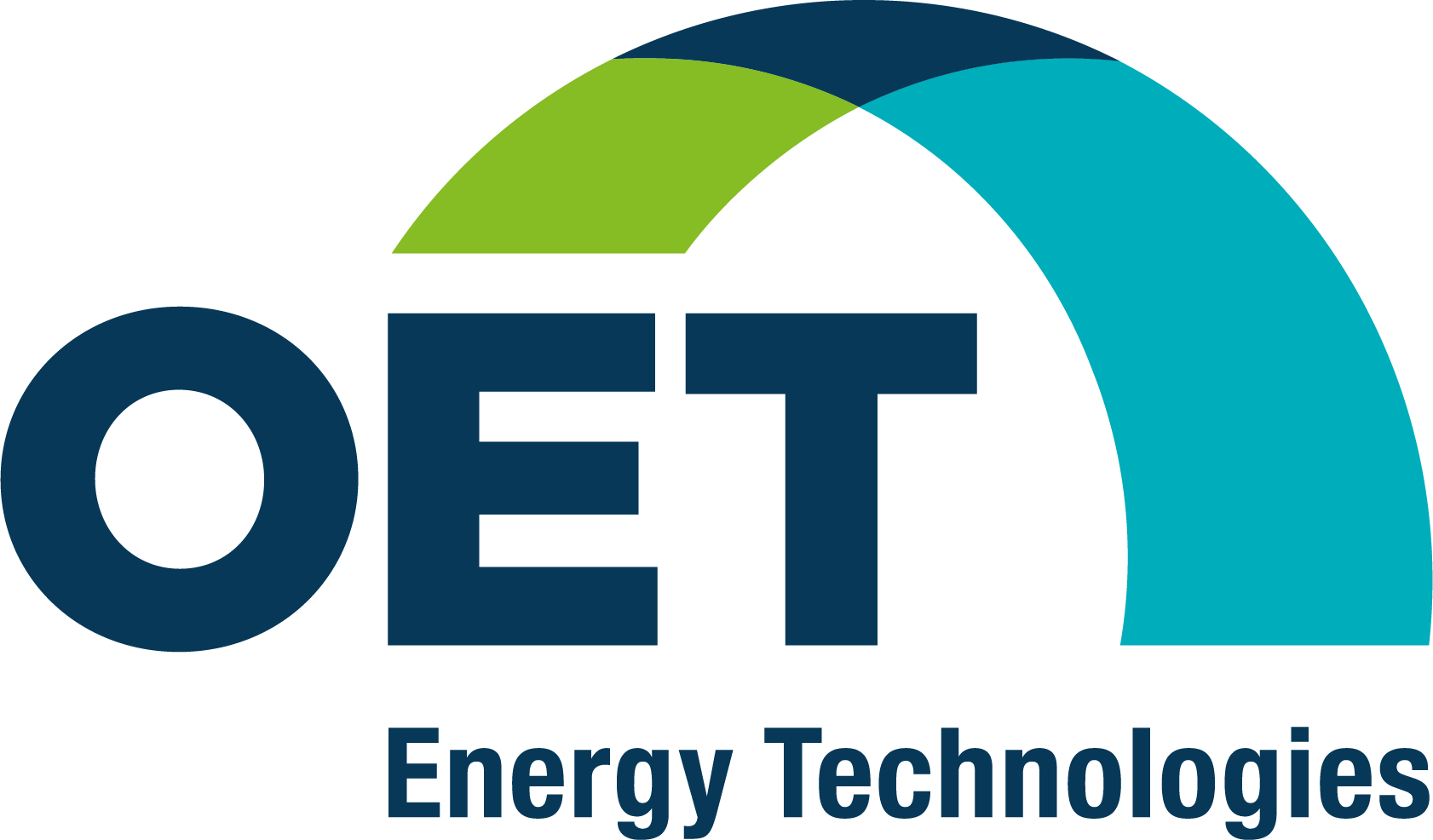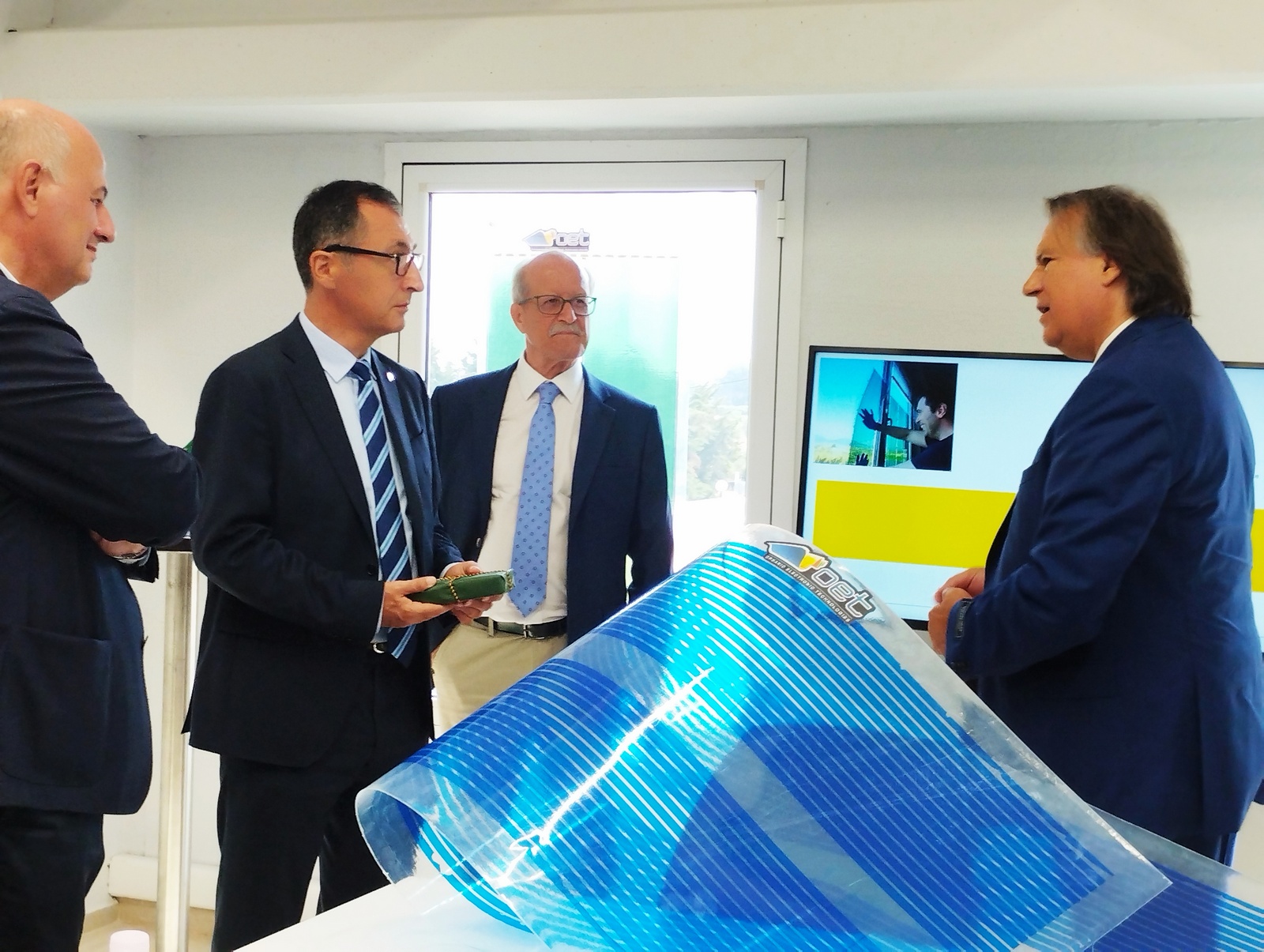In a major step forward for green energy and agriculture, the Greek Minister of Rural Development and Food, Kostas Tsiaras, and his German counterpart, Cem Özdemir, visited the Nanotechnology & Organic Electronics Ecosystem in Thessaloniki, hosted by Professor Stergios Logothetidis, a leading expert in nanotechnology. This event marked a significant showcase of innovative technologies that have the potential to transform agriculture and energy production in Europe.
During the visit, the ministers were introduced to cutting-edge Organic Printed Photovoltaics (OPVs), a technology that stands out due to its transparent thin-film structure, lightweight design, flexibility, and high efficiency. Developed by the Organic Electronic Technologies (OET) company, these next-generation solar panels are seen as a game-changer in renewable energy. The Greek and German delegations had the opportunity to see firsthand how these innovations are being applied in AGRO-PV Hubs, including energy-autonomous greenhouses where crops like tomatoes, peppers, and eggplants are cultivated using OPV-powered systems. These greenhouses not only reduce energy and water consumption but also increase crop yields by up to 30%.
Greek Minister Kostas Tsiaras emphasized the importance of nanotechnology for the agricultural sector, stating, “New technologies such as nanotechnology have the potential to solve long-standing challenges, particularly in securing energy, water, and higher-quality food production. These advancements will provide producers with the opportunity to achieve significant results, bringing tomorrow’s solutions into today’s primary sector.”
The visit also highlighted the European-backed Flex2Energy project, which aims to establish the world’s first automated manufacturing line for organic photovoltaics. This development is expected to propel Europe towards energy autonomy by reducing dependence on non-European sources for photovoltaic technologies, a point underscored by German Minister Cem Özdemir. “These flexible solar modules allow us to harvest both energy and food from the same land, offering a win-win solution for both the environment and the economy,” Özdemir noted.
The event underscored the strong collaboration between Greece and Germany in addressing global challenges such as climate change. By investing in innovative solutions like OPVs, Europe is moving closer to a sustainable, resilient future, with Thessaloniki emerging as a hub for green energy and technological advancement.
As the event concluded, Professor Logothetidis pointed out the global implications of this technology, revealing plans for large-scale manufacturing facilities that will further boost Europe’s position in the renewable energy landscape by the end of 2025. This collaboration sets the stage for a future where cutting-edge innovations drive both environmental sustainability and economic growth across the continent.



